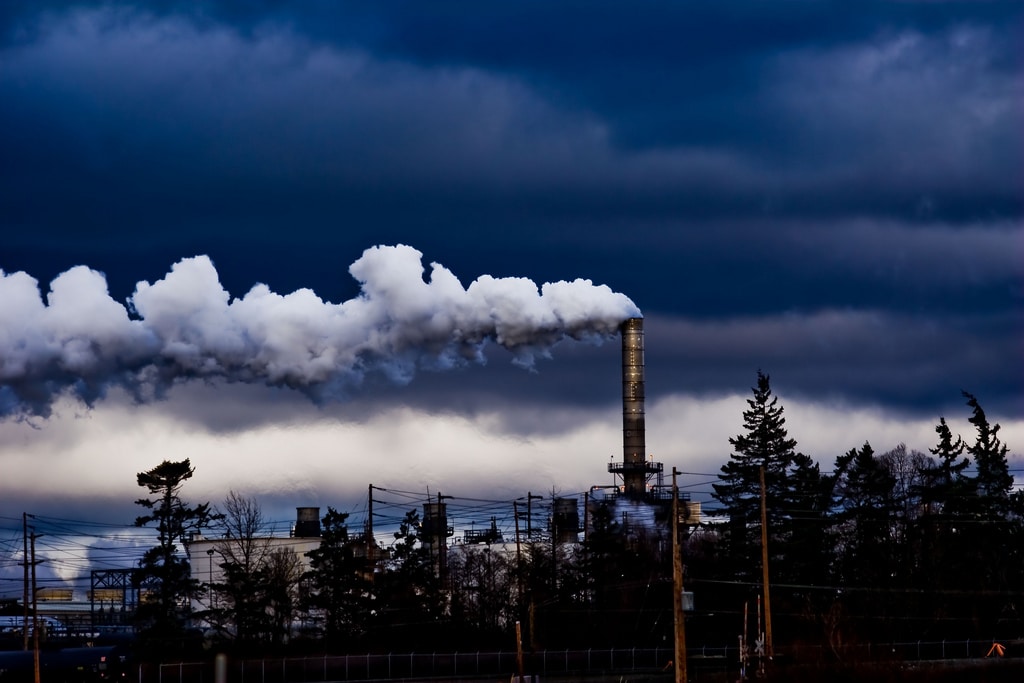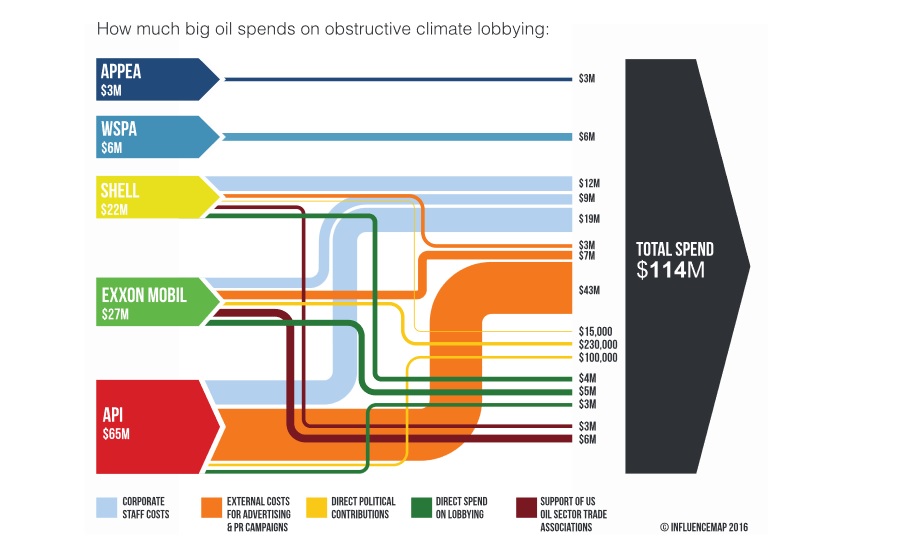“Despite the recent Paris Agreement on global warming, the fossil fuel industry is still systematically trying to stall progress, and using shareholder funds to do so,” warns a new report by London non-profit organisation InfluenceMap.
According to InfluenceMap’s research, last year international oil giants ExxonMobil and Shell, along with three powerful industry trade associations, spent US$114 million (£80.8m) in an effort to obstruct climate legislation.
These millions were spent on a range of activities including PR, social media, advertising, and lobbying, in order to influence American and European policy makers and manipulate public discourse on climate change.
As the report reveals, ExxonMobil spent $27m (£19m) in 2015 while Shell spent $22m (£15.6m).
Meanwhile, the American Petroleum Institute – the largest industry trade association with known links to climate denial groups – spent a total $65m (£46m), and a further $9m (£6.38m) was spent collectively by two smaller groups: the Western States Petroleum Association and the Australian Petroleum Production & Exploration Association.
InfluenceMap also estimates that Shell and Exxon contributed almost $10m, (£7m) between them to these three trade associations’ anti-climate lobby efforts.
But delving deeper, it quickly becomes apparent that this is just a fraction of what the fossil fuel industry is spending worldwide on stalling meaningful action on climate change.
As Thomas O’Neil, InfluenceMap research director, told DeSmog UK: “Their actual spend could be much higher, and we haven’t captured the funding of multiple other trade associations, think tanks, and their use of dark money.
“Then if you consider all the other oil and gas companies we could have included, yes, it is the tip of the iceberg.”
The report estimates that if the analysis was extended across the oil and gas sector, as well as including other related sectors such as the automotive and utilities industry, and multi-sector trade associations, all of which work to obstruct climate policies, “it is not unreasonable to estimate that in excess of $500m [£354m] is spent by the corporate sector globally on obstructing ambitious climate policy and regulations in line with achieving less than 2C warming.”
Including the “dark pools” of money being channelled into anti-climate think tanks and institutes would further increase this number the report notes.
“While we regard our estimates as conservative,” it states, “they still represent significant use of shareholder funds to obstruct ambitious climate policy.”
Increasingly, investors have been calling for greater climate disclosure from companies. So far in 2016 alone, 15 shareholder resolutions have been filed in the US with oil and gas companies concerning their lobbying.
And Exxon, in particular, is feeling the heat as 20 state Attorneys General have launched investigations into the oil giant’s climate misinformation efforts.
The amount spent by groups pushing for stronger climate policies, however, pales in comparison to the amount spent by the five fossil fuel entities covered in the report.
InfluenceMap estimates that investor groups likely spend less than $5m (£3.5m) a year on efforts to call for ambitious policies in line with the Paris climate goal of limiting warming to less than 2C.
And while more and more money is being spent by these groups on pro-climate advocacy, the report argues “it is likely that a significant ramp up in investment and activity will be required.”
Photo: Mike Morris via Flickr
Subscribe to our newsletter
Stay up to date with DeSmog news and alerts







